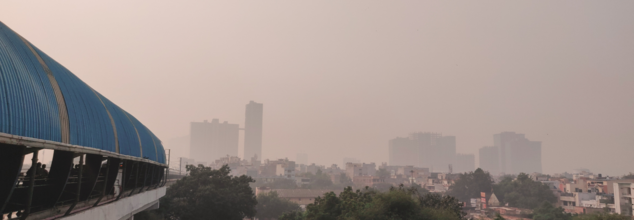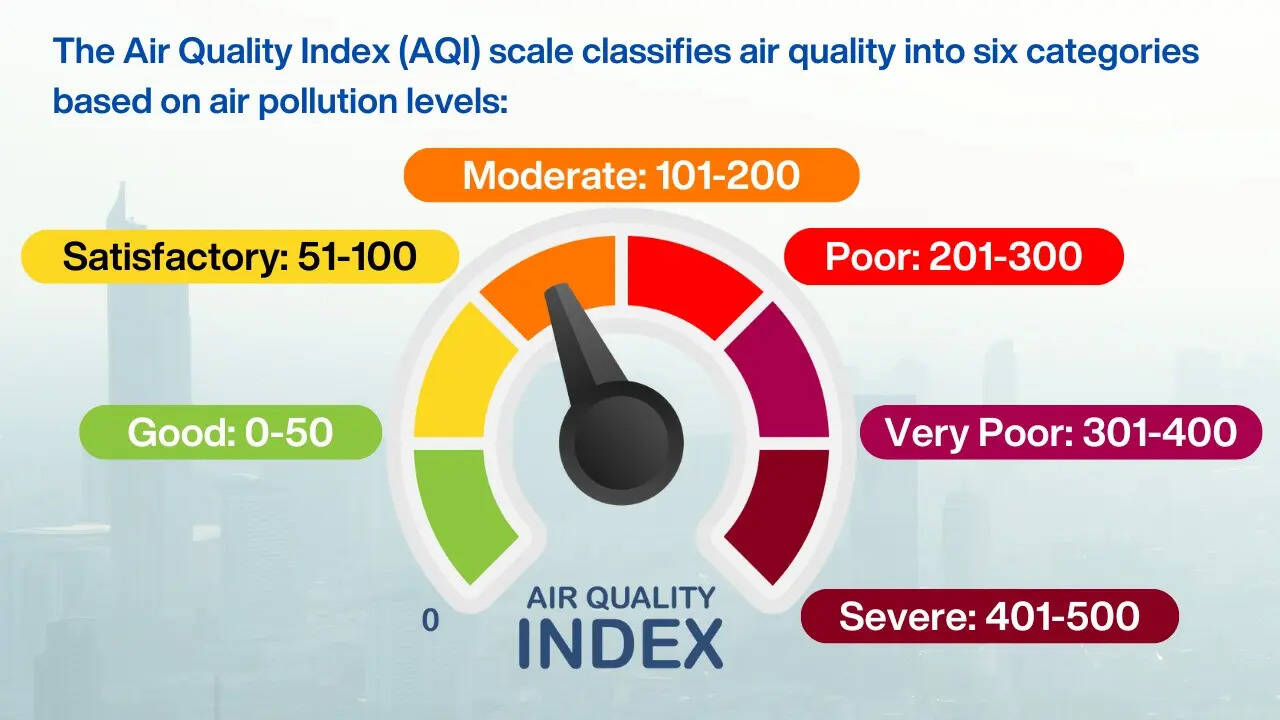
Delhi Pollution Is Causing Health Issues Not Seen Before
The air quality index (AQI) has worsened in Delhi-NCR in the past few days with the Commission for Air Quality Management (CAQM) invoking stage two of the anti-pollution plan Graded Response Action Plan (GRAP). Doctors and experts have also taken note of the rise in pollution, and have observed diseases they have not seen before.
Dr Sanjay Jain, a Delhi-based ENT and a member of DocTube also noted an increase in the number of patients with respiratory issues. "I have seen a notable increase in patients with upper respiratory tract infections, chronic sinusitis, and allergic rhinitis, which are directly linked to rising pollution levels," he says. From his experience, he has noticed a rough increase of 30 to 40% of patients with pollution-related ENT issues.
What Is The Administration Doing?
As per the System of Air Quality and Weather Forecasting and Research (SAFAR), the AQI in Delhi at 8 am today was recorded at 317, which falls under the "very poor" category. The India Meteorological Department (IMD) has predicted that the average AQI will stay in the "very poor" category in the coming days.

GRAP accounts for the restrictions on the usage of coal and firewood, and diesel generator sets in the Delhi-NCR. Furthermore, plans for mechanical sweeping and water sprinkling on the identified roads will also be carried on a daily basis. The plan expands to dust control measures at the construction and demolition sites too.
Parking fees will also be increased to discourage private transport with additional buses and metro services to start soon.
Source Of Pollution
A study titled What Is Polluting Delhi's Air? A Review from 1990 to 2022 mentions that Delhi's major contributor is road transport, while the second major factor comes from burning agricultural waste or stubble. Other factors like waste management, the construction sector, roads, and firecrackers during Diwali also lead to the increase in pollution.
Health Issues
Delhi pollution is more dangerous than we think. Not just breathing issues, but it can also lead to lung cancer and heart diseases. Studies have shown that prolonged exposure to pollution can lead to a reduction in lung function and also premature death, especially in children. It can also lead to increased risks of stroke, cognitive decline, and even pregnancy complications.
Doctors also take note of other pollution-related issues that were not seen before or are unusual. Dr Jain says that prolonged exposure to pollution can cause chronic ear infections in children due to inflammation in the Eustachian tube. "This is not commonly recognised by the people," he says. Dr Brunda MS, senior consultant, of internal medicine at Aster CMI Hospital in Bengaluru also explains that many people remain unaware of the health issues associated with pollution. Apart from shortness of breath, environmental toxins can cause brain diseases and reproductive health issues. "The subtle and slow effects of pollution often lead Understanding these relationships can help communities promote cleaner, more resilient environments," explains the doctor.
The doctor also explains the impact of pollution on the eyes as it can cause conjunctivitis or worsen any pre-existing eye infection. Dr Brunda MS also mentions that air pollution is responsible for 1.67 million deaths in India, which is 17.8% of the total deaths in the country. "There has been a 3 to 4% increase in a number of cases because of pollution," the doctor explains.
How To Stay Safe?
Dr Jain explains the precautions one can take to stay safe and prevent these diseases from happening. "Individuals can protect themselves by wearing masks, using air purifiers at home, avoiding outdoor activities during high-pollution days, and maintaining a healthy lifestyle," he explains.
The doctors also recommend wearing N95 masks, surgical masks or equivalent for effective filtration of airborne particles, consuming warm fluids and herbal teas and eating food rich in vitamin C and antioxidants that will help reduce inflammation and protect mucous membranes in the throat.
© 2024 Bennett, Coleman & Company Limited

